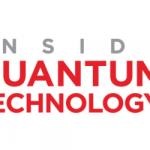Keysight: Quantum poised to speed up material design processes

In the spirit of looking ahead to a new year, Dr. Eric Holland, Director of Quantum Engineering Solutions at Keysight Technologies, has offered IQT News his assessment of how several quantum-related movements could evolve not only in 2023, but beyond:
Quantum is poised to accelerate complex design processes.
In the airline industry, it’s not uncommon for companies to spend 25 years designing a new polymer that will make planes more fuel efficient, resistant to temperatures, etc. Quantum will significantly accelerate this and other material science design timelines. Rather than spending their entire career on one design cycle, employees will be able to complete the process in a matter of years.
The climate change battle is set to take a quantum leap.
Once quantum demonstrates advantage, it will increasingly be channeled to help fight climate change. For example, improving decision-making through complex modeling and predictions and helping ensure compliance with emission standards.
Before the end of the next decade, quantum will enable meteorologists to better predict the trajectory of hurricanes, winter storms, and other weather events. This will allow communities to better plan and remove any element of guesstimates in determining whether to mandate evacuations or shelter in place. As a result, the loss of life associated with hurricanes and other natural weather-driven disasters will be reduced.
Quantum navigation will illuminate remote areas.
Quantum technology can facilitate navigation in remote areas with minimal satellite coverage, but cost is currently a barrier to adoption. This will begin to change as quantum becomes more prevalent and affordable. I believe that we’ll see emergency vehicles equipped with quantum sensors within the next decade—with consumer vehicles eventually following suit.
Europe will be hot on heels of the US with quantum adoption.
The US is currently leading the quantum computing industry, but by the end of the decade, Europe will reach parity. Increasing privacy regulations is one major driver behind Europe’s growth, as having quantum computing capabilities in the region will make it significantly easier to comply with these mandates. In addition, European quantum companies have seen the largest venture rounds and the plethora of universities throughout the continent provide a talent pipeline that can be tapped to fuel new quantum opportunities and use cases. As a result, the US quantum industry will feel increasing pressure to maintain its competitive advantage.
The quantum sector is laying the foundation for a successful future.
After decades-long hype around quantum computing and quantum systems, the industry will start to realize its potential for creating new opportunities in fields spanning cybersecurity, materials creation, financial analysis and military receivers.
Proactive companies will start investing in quantum, fostering quantum talent within the next generation of workers through university partnerships, hackathons and other projects. This will create an ancillary boost to DEI initiatives resulting in much-needed diversity in the tech workforce. Recent research revealed that 74% of companies believe they will fall behind if they fail to adopt quantum. As a result, organizations will begin to shift their thinking that quantum is a futuristic technology and begin addressing key challenges, including financial resources and operations, and developing real enterprise applications of quantum by 2026, if not sooner.
Dan O’Shea has covered telecommunications and related topics including semiconductors, sensors, retail systems, digital payments and quantum computing/technology for over 25 years.



















